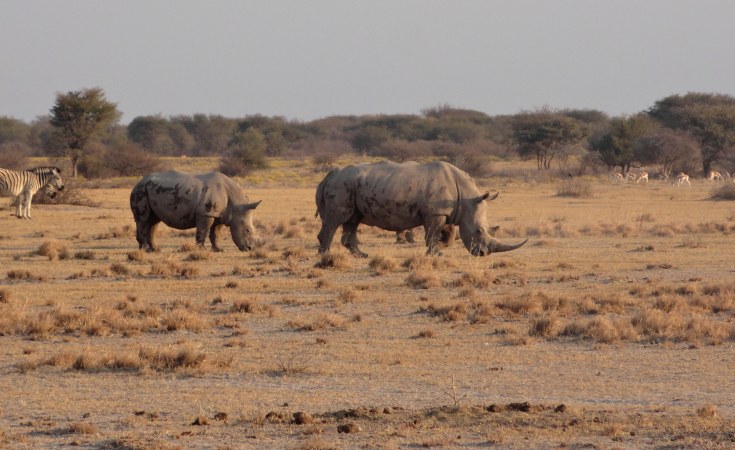Gaborone, Botswana — Botswana's wildlife officials say the country has lost half of its wild rhinoceroses to poaching and natural causes since 2018.
Mabuse Pule, acting minister of the environment and tourism, told the National Assembly on Monday that 138 rhinoceroses had been poached and 76 died of natural causes in the last five years.
He attributes the spike in poaching incidents to a rise in the demand for the rhino horn in Asia, particularly in China and Vietnam.
"Botswana experienced a significant increase in incidences of rhino poaching in 2020," Pule said. "These incidences can be attributed to a number of factors, including an increased demand for rhino horn in the international market. Hence, poachers looked for places where rhinos are around and also a displacement of international criminal syndicates from other southern African states."
On the positive side, Pule noted the number of animals killed by poachers in 2022 dropped sharply.
"In the year 2021, following increased anti-poaching interventions, 33 rhinos [were] lost to poachers and only six rhinos [were] poached during the year 2022," he said. "On account of these trends, it is evident that the interventions being implemented are bearing fruit."
Besides poaching, the animals have been dying in large numbers due to natural causes. Botswana's rhino population was estimated at 400 in 2019.
"In terms of animals that have died due to natural causes, a total of 76 rhinos were lost to natural causes," Pule said. "The country lost five in 2018, 18 rhinos in 2019, 22 in 2020, 15 in 2021 and 16 in 2022 rhinos. Most of these mortalities are from old age, disease and/or injuries sustained during rhino fights."
Rhino conservationist Map Ives said rhino mortalities due to natural causes are too high.
"We have natural causes that can occur, for example, fights between bulls; sometimes bulls will kill calves, hyenas can catch calves, lions can catch calves and fire can kill the animals. But at most, [we lose] two or three a year. We do not lose 76 animals in three or four years," Ives said.
Nina Fascione, executive director at the International Rhino Foundation, said southern Africa remains a hot spot for rhino poaching.
"The International Rhino Foundation remains very concerned about poaching in Southern Africa. Poaching remains a huge threat to black and white rhinos. It is hard to talk about trends but poaching was artificially reduced during the COVID pandemic, and now has been on the rise in some countries," Fascione said.
In a bid to discourage poachers, Botswana has de-horned and relocated its rhino population from the vast Okavango Delta to undisclosed sanctuaries.


